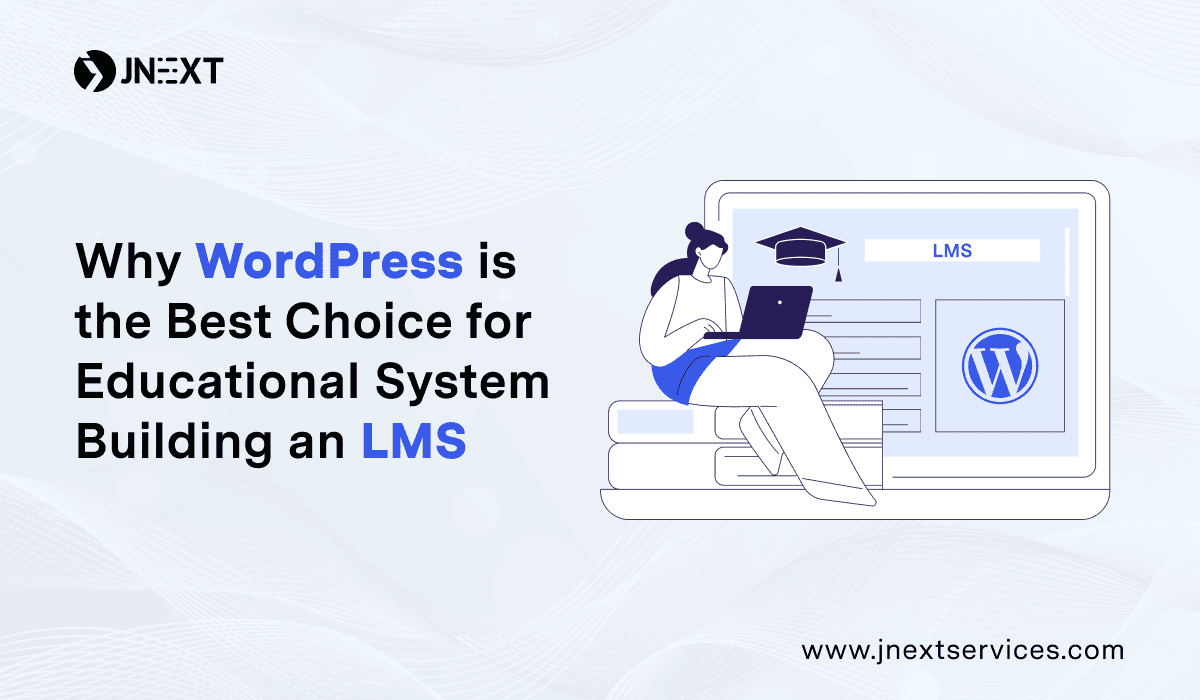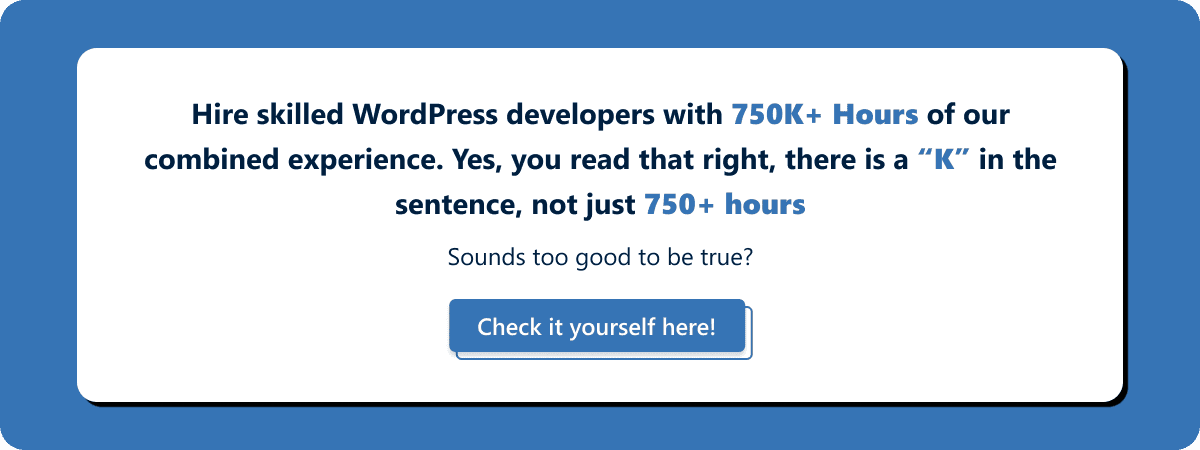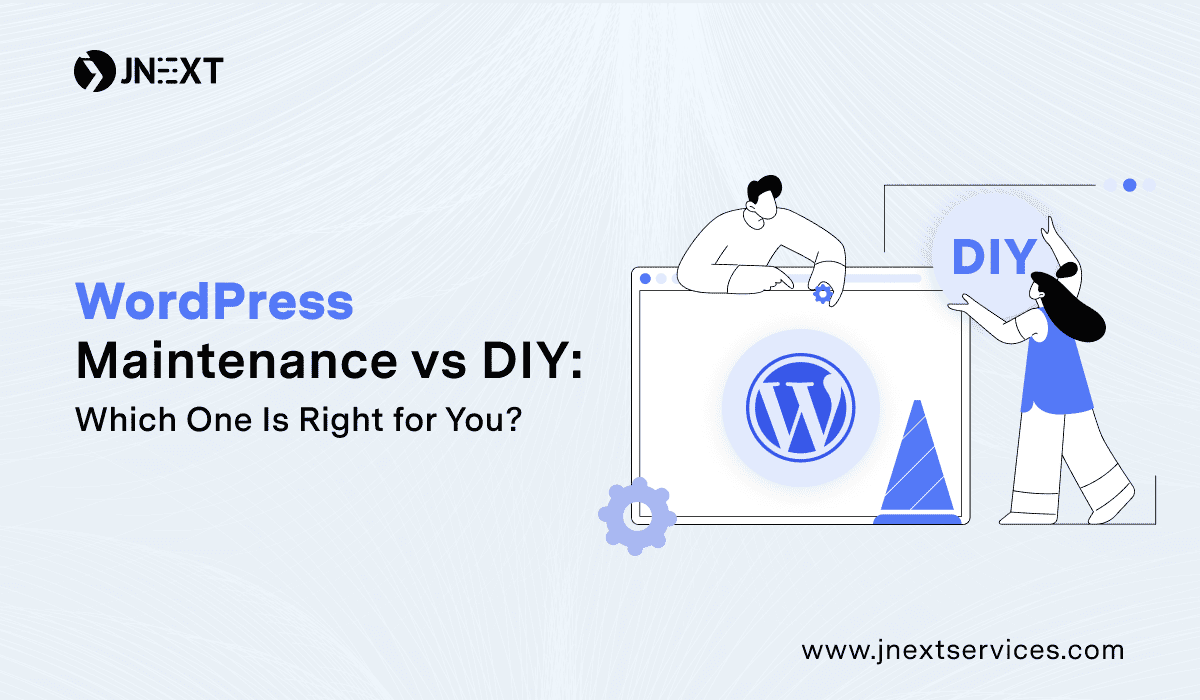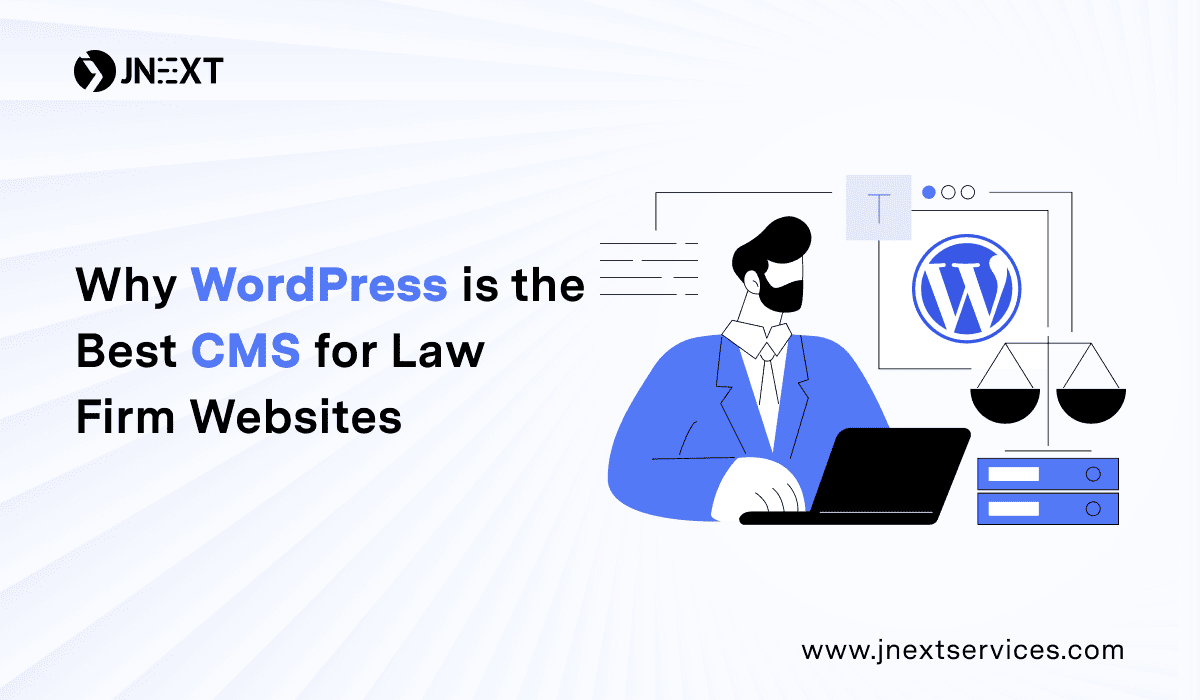Building an online learning platform has never been easier, but choosing the right tools?
That’s where things get tricky.
With so many options out there, how do you choose the right platform to build your LMS?
If you’re looking for something that’s powerful, budget-friendly, easy to manage, and fully customizable, then WordPress is hands down one of the best choices out there.
In this blog, we’ll discuss why WordPress stands out for educational institutions, what makes it ideal for building an LMS, and which tools can help you get started.
Let’s get started!
- Why Do Modern Educational Institutions Need a Flexible LMS?
- 1. Hybrid and Remote Learning Are Now the Norms
- 2. Frequent Curriculum Updates and Course Iterations
- 3. Teacher Turnover and Varied Tech Skills
- 4. Diverse Student Devices and Internet Conditions
- 5. Need for Role-Based Access and Departmental Separation
- Why Choose WordPress for LMS?
- 1. Cost-Effective Setup
- 2. Ease of Use and Customization
- 3. Large Ecosystem of Plugins and Themes
- 4. Scalability for Institutions of All Sizes
- 5. Community Support & Developer Availability
- 6. Seamless Integrations
- 7. Mobile Responsiveness
- 8. SEO & Marketing Tools
- 9. Multi-language LMS Support
- Top 5 WordPress LMS Plugins for Education
Why Do Modern Educational Institutions Need a Flexible LMS?
1. Hybrid and Remote Learning Are Now the Norms
Most schools and colleges aren’t sticking to just one format anymore. Some classes happen online, some offline, and some switch between the two.
A flexible LMS makes it easy for teachers and students to stay on track no matter where or how learning happens.
2. Frequent Curriculum Updates and Course Iterations
Courses don’t stay the same for long. Boards update guidelines, industry standards change, and teachers tweak content mid-semester.
So, the platform they use needs to let them update lessons, add resources, or rearrange modules easily without waiting on a tech team.
3. Teacher Turnover and Varied Tech Skills
Not every teacher is comfortable with tech, and schools often have new staff coming in. That means the LMS can’t be complicated.
It should be simple enough for anyone to pick up and use, with tools that help teachers build and manage courses without extra training.
4. Diverse Student Devices and Internet Conditions
5. Need for Role-Based Access and Departmental Separation
In larger schools or universities, you’ve got different departments, classes, and roles.
Why Choose WordPress for LMS?
1. Cost-Effective Setup
WordPress is free and open-source, and that means you don’t need to pay hefty licensing fees like you would with many LMS platforms.
All you need is a domain and hosting, and you’re good to go.
Also, with a number of options of free and affordable plugins, you can build a feature-rich LMS without spending thousands upfront.
2. Ease of Use and Customization
One of the most common reasons behind WordPress’s popularity is its ease of use. You don’t need a tech background to run a WordPress-based LMS.
The admin dashboard is clean and intuitive, so teachers and admins can easily manage courses, content, and users.
Also, LMS plugins like LearnDash or Tutor LMS offer drag-and-drop course builders. It makes it more simple to structure lessons and quizzes without writing any code.
3. Large Ecosystem of Plugins and Themes
Whatever functionality you need, quizzes, certifications, student progress tracking, live chats, or even gamification, there’s a plugin for everything.
WordPress also has a massive library of education-focused themes, so you don’t have to spend money hiring designers. With WordPress, your LMS will look polished and professional.
4. Scalability for Institutions of All Sizes
Whether you’re starting with a single course or managing a platform for thousands of students, WordPress can handle it.
You can easily expand your content, add instructors, or grow your student base.
And with the right hosting and performance setup, it can scale smoothly without crashing under traffic.
5. Community Support & Developer Availability
WordPress has one of the largest online communities, so if you run into issues, chances are someone’s already solved it.
You can find free tutorials and there are active forums that are always available when you need it.
And if it comes to hiring a developer because you are not able to solve the issue, you can easily find and hire WordPress developers.
6. Seamless Integrations
WordPress connects with the tools you’re already using.
- Want to host live classes? Integrate Zoom or Google Meet.
- Need email automation? Add Mailchimp or ConvertKit.
- How will you support wine club management and subscriptions?
- What’s your approach to customer data and personalization?
You can also link CRMs like HubSpot or Zoho, and accept payments through Stripe, PayPal, or Razorpay all in a few clicks.
7. Mobile Responsiveness
Most students access lessons on their phones.
With WordPress, most themes and LMS plugins are mobile-optimized by default.
So your LMS will automatically adapt to any screen size. It ensures a smooth learning experience across all devices.
8. SEO & Marketing Tools
If you want people to find your courses online, WordPress has your back.
Plugins like Yoast SEO help you rank on Google, while built-in blogging and lead capture tools make it easy to attract and engage new learners.
9. Multi-language LMS Support
If you’re targeting a diverse audience, WordPress makes multilingual support simple.
With plugins like WPML and Polylang, you can offer your courses in multiple languages.
This is especially useful for institutions in multilingual countries or those catering to international students.
Top 5 WordPress LMS Plugins for Education
1. LearnDash
Key Features:
- Drag-and-drop course builder
- Advanced quiz creation
- Drip content scheduling
- Course prerequisites
- Certificates and badges
- Integration with Zoom, Stripe, and more
- Support for SCORM and Tin Can (xAPI)
2. Tutor LMS
Tutor LMS is a fantastic all-in-one LMS plugin that’s beginner-friendly but still powerful enough for serious educators. It comes with a clean interface, modern UI, and a solid free version to get started. It’s especially great for those looking to launch an online academy quickly.
Key Features:
- Frontend course builder
- Drag-and-drop lesson creation
- Quiz builder with multiple question types
- Student dashboard
- Monetization options (WooCommerce, EDD, etc.)
- Certificates
- Email notifications
3. LifterLMS
LifterLMS is perfect if you’re looking to build a complete learning platform with coaching, memberships, or subscription models. It’s super flexible and lets you scale up as your needs grow. Probably the best choice for solopreneurs, schools, and training teams alike.
Key Features:
- Course and membership management
- Built-in eCommerce support
- Quiz and assignment builder
- Student analytics
- Engagement features (certificates, achievements, emails)
- Drip content
- Integration with Stripe, PayPal, WooCommerce
4. Sensei LMS
Sensei LMS is developed by the same team behind WooCommerce development, so it’s a natural fit if you’re already using WordPress for eCommerce. It’s great for simple course delivery without too much hustle. It makes it ideal for schools or content creators who want a straightforward setup.
Key Features:
- Native WordPress editor integration
- Course and lesson management
- Basic quiz functionality
- Student progress tracking
- WooCommerce integration for paid courses
- Free and premium extensions
5. MasterStudy LMS
MasterStudy LMS is a solid option for beginners or those who want a simple and stylish LMS up and running fast. It offers built-in course bundles, quizzes, and good design out of the box. It also comes as a theme+plugin combo, making setup easy for non-tech users.
Key Features:
- One-click course builder
- Lesson types (text, video, live sessions)
- Quiz builder
- Certificates and course ratings
- Integration with Zoom and Google Classroom
- Multi-instructor support
- Course bundles and subscriptions
Conclusion
If you’re part of an educational institution looking to build a powerful, affordable, and future-ready LMS, WordPress is a smart choice. It combines ease of use, flexibility, and a huge library of tools that help you teach better, scale faster, and save money.
Whether you’re starting small or planning big, WordPress grows with you.
Ready to build your LMS?
Building an LMS doesn’t have to be complicated or costly. At JNext, we help educational institutions bring their learning experience online with custom WordPress LMS solutions that are smart, scalable, and actually fun to use (yes, even for teachers!).
Whether you’re launching your first course or running a full-blown digital academy, we’ll help you build it right from day one.
👉 Let’s make learning digital and delightful. Talk to us today.









skype id
jnext_services
email us [email protected]
india
+91 98587 63596
United Kingdom
+ 44 77679 57915